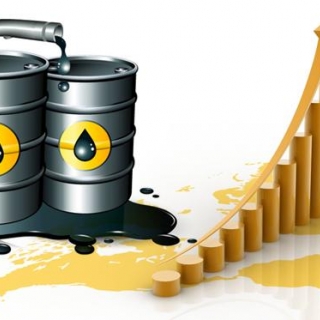


Oil prices rose on Friday, after rising about 3% in the previous session, as trade tensions between top oil consumers the U.S. and China showed signs of easing and Britain announced a "breakthrough" trade deal with the United States.
Brent crude rose 43 cents, or 0.68%, to $63.27 a barrel while U.S. West Texas Intermediate crude rose 42 cents, or 0.7%, to $60.33 a barrel by 0731 GMT. Both contracts closed up nearly 3% on Thursday.
U.S. Treasury Secretary Scott Bessent will meet China's top economic official, Vice Premier He Lifeng, in Switzerland on May 10 to try to resolve a trade dispute that has threatened growth in crude consumption. "If the two set a date to start formal trade negotiations and agree to roll back their current high tariffs on each other while talks continue, the market will get a break and crude could rise $2-$3 a barrel," said Vandana Hari, founder of oil market analysis provider Vanda Insights.
China's exports rose faster than expected in April, while imports narrowed their decline, customs data showed on Friday, giving Beijing some relief ahead of the tariff talks that broke the ice.
The country's crude imports in April fell from the previous month but rose 7.5% year-on-year, boosted by a surge in sanctioned shipments and stockpiling by the country's refiners during maintenance outages.
Separately, U.S. President Donald Trump and British Prime Minister Keir Starmer announced Britain had agreed to lower tariffs on U.S. imports to 1.8% from 5.1%. The U.S. cut tariffs on British cars but kept 10% tariffs on most other goods. "Any other U.S. trade deal, after the U.K. deal, with other major trading partners would have little impact on oil sentiment," Hari added.
Elsewhere, the Organization of the Petroleum Exporting Countries and its allies - or OPEC+ - are planning to increase output, which could further pressure oil prices. A Reuters survey found OPEC oil output fell slightly in April as output cuts in Libya, Venezuela and Iraq outweighed planned output increases.
Tighter U.S. sanctions on Iran could curb supply and push prices higher. Sanctions on two small Chinese refineries for buying Iranian oil have made it difficult for them to receive crude and forced them to sell their products under alternative names, sources told Reuters on Thursday.
Meanwhile, Pakistan's armed forces carried out "several attacks" along India's western border late Thursday and early Friday, the Indian army said, as tensions between the nuclear-armed neighbors escalate.
Rystad Energy analysts expect both countries to step up crude procurement and refinery activity amid the rising tensions.
"Diesel demand is likely to pick up amid heightened military mobilization, while airline fuel consumption is down as airspace closures lead to flight diversions, cancellations and skyrocketing airfares," Rystad's Rohan Goindi said in a note. (Newsmaker23)
Source: Reuters
Oil prices stabilized on Thursday (February 12th), as the market reassigned a risk premium to US-Iran tensions despite US inventory data showing swelling domestic supplies. This movement confirms one ...
Oil prices rose on Wednesday (February 11th), supported by a combination of geopolitical risk premiums from US-Iran tensions and more solid Asian demand signals particularly from India which helped ea...
Oil remained in the green zone on Tuesday (February 10th), as the market refused to abandon the Middle East risk premium. As of 13:07 GMT (20:07 WIB), Brent rose +0.4% to $69.32/barrel, while WTI rose...
Oil prices fell about 1% on Monday as concerns about conflict in the Middle East eased slightly. The market calmed after the US and Iran agreed to resume talks on Tehran's nuclear program, reducing fe...
Oil prices moved slightly higher in a volatile session on Friday, as investors assessed the direction of nuclear negotiations between the United States and Iran. Price movements appeared sensitive to ...
Oil prices stabilized on Thursday (February 12th), as the market reassigned a risk premium to US-Iran tensions despite US inventory data showing swelling domestic supplies. This movement confirms one thing: geopolitical headlines are still more...
Gold prices weakened slightly on Thursday (February 12th), as more solid US employment data reduced market confidence in an imminent Federal Reserve interest rate cut. The strong employment data prompted market participants to shift expectations of...
The Hang Seng Index reversed its downward trend in Hong Kong on Thursday (February 12th), weakening by around 0.9% to around 27,000 after a strong session earlier. This decline halted the momentum of the short term rally, as investors began to...